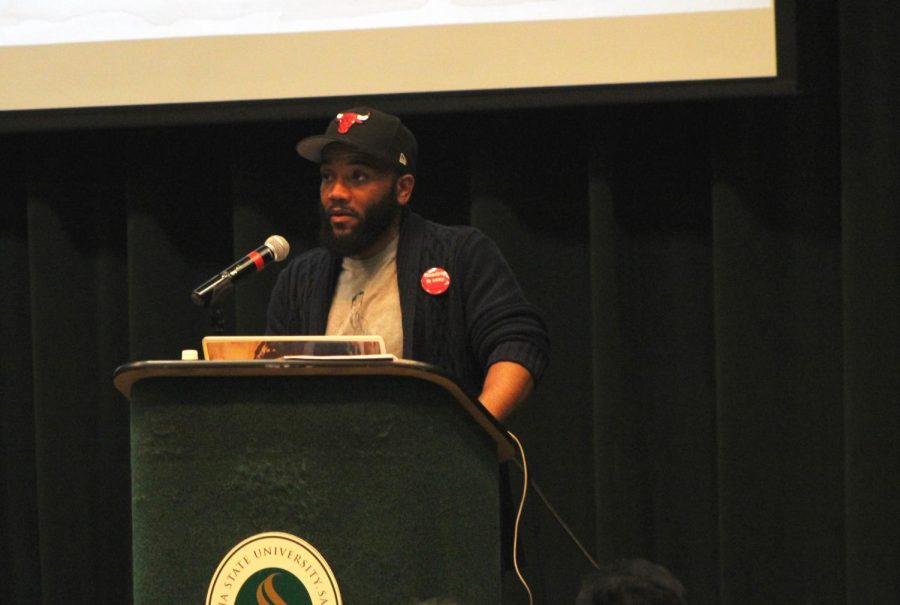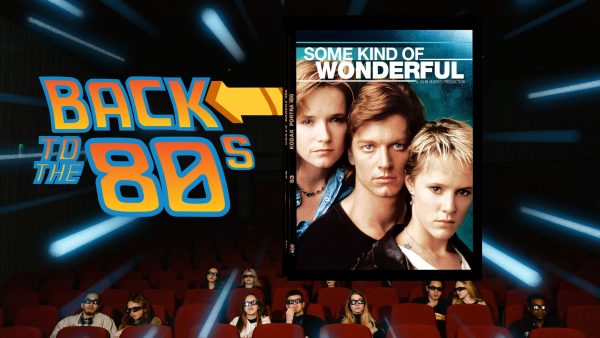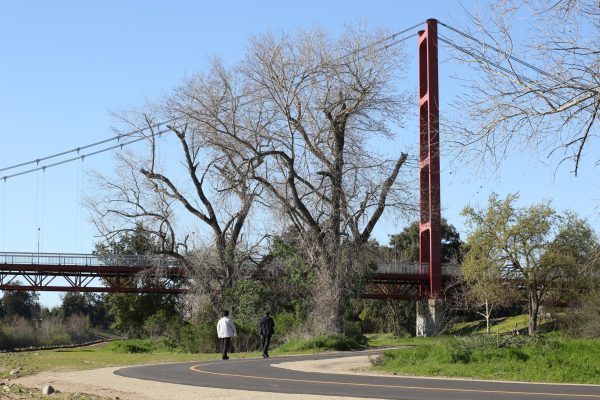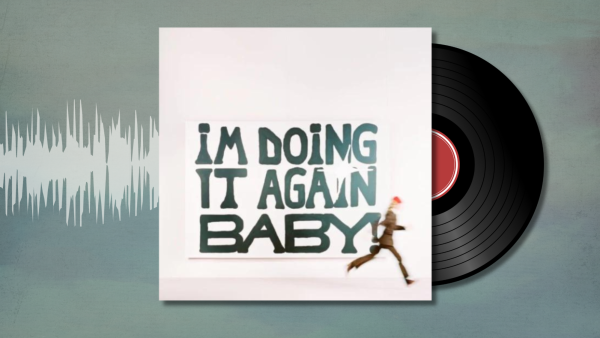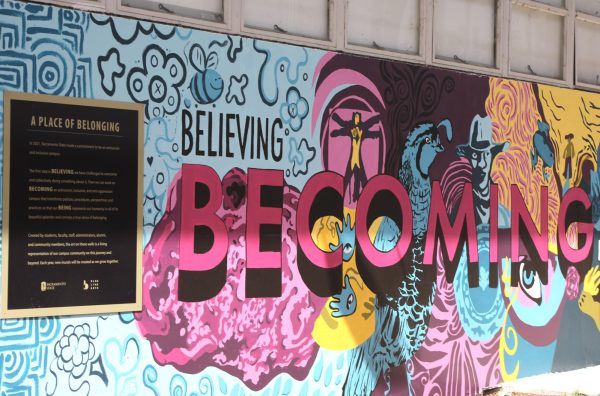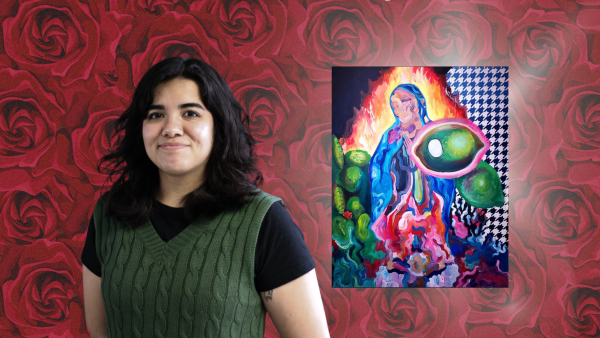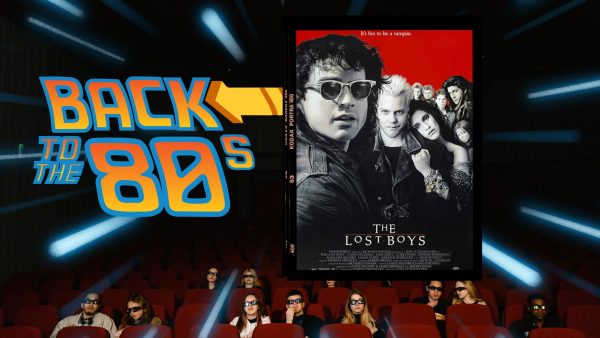A.D. Carson brings hip-hop dissertation to Sac State
Robby Sanchez - The State Hornet
Dr. A.D. Carson, professor of hip-hop at the University of Virginia, during his lecture that took place in the Union Redwood Room Feb. 12.
February 14, 2018
A.D. Carson took the stage in the University Union’s Redwood Room on Monday night with the message that hip-hop can be more than just a music genre.
Carson mostly spoke through tracks and excerpts from “Owning My Masters: The Rhetorics of Rhymes and Revolutions,” his 34-track hip-hop dissertation that landed him Clemson University’s graduate student government award for outstanding dissertation last year.
Now a professor at the University of Virginia, Carson utilized a unique method of education to discuss his journey and the thought process behind the nationally-acclaimed project before an audience of both students and community members.
Carson graduated from Clemson with a Ph.D. in rhetoric, communication and information design. Being a “professor of hip-hop” was a career option he didn’t imagine existed during his high school years, he said.
The event began with a video introduction in which Carson explained the basic purpose behind his hip-hop dissertation — to break the barriers between artistic and academic expression.
“Can scholars not just create or speak through hip-hop as opposed to having it mixed with something else in order for it to be acceptable?” Carson explained. “I’m just removing the filter and doing the rap.”
An excerpt from his track titled ‘Second Amendment (Shoot Back)’ filters in to exemplify the emotional approach at which Carson displays in every track, whether it be concerning racial injustices or other cultural issues.
Carson dove right into the making of the song titled “Good Mourning, America,” and performed the entire piece. The track was done a capella and was absent of any instrumental accompaniment or beat.
He followed with his third track “Willie Revisited,” another a capella piece, and a video depiction of “Familiar.”
The lyrics sparked a discussion on police brutality and discrimination against African-Americans. In closing, he performed a rendition of a track called ‘Too’ from his current project ‘Sleepwalking, Vol. 1: A Mixtape.’
Carson also presented a poem that stood alone from his dissertation. ‘See The Stripes’ serves as a call to action to not only students and faculty at Clemson University but those elsewhere, asking people to recognize and acknowledge the dark and disturbing history that runs deeper than the pipelines beneath the pristine campus.
The university, once a plantation, was built from the hands of those oppressed for decades, a fact which Clemson University seemingly chooses to ignore, he said.
“Slavery being the positive good according to Master Calhoun, whose house sits still on a plot atop a hill overlooking the football field … and I can even enter through the front door,” Carson rapped. “What I cannot do, however, is depend on the tour guide to give me the whole history of the foundations of my university because … it’s uncomfortable for some people to talk about.”
For Carson, hip hop has always been much more than a mere music genre. He explained that idea of hip-hop itself is a combination of various forms of rap and poetry. It’s an ever changing way of expression that cannot be limited to a mere “genre” of music, he said.
Carson also spoke of the resistance he encountered during the process of creating his dissertation. White supremacists, faculty and students at the university all fell into this category, he said.
But the drive to finish his project came from the oppression he experienced, he said.
“If I’m submitting a certain kind of work and someone says ‘Why don’t you do that work in a way that’s more legible to whoever,’ ” Carson said. “Then my response would be ‘Because if we’re trying to innovate or we’re trying to do something new or we’re trying to add to what it is that this academic enterprise has always been offering, then why wouldn’t I do the thing that hasn’t been done before?’ ”































































































































